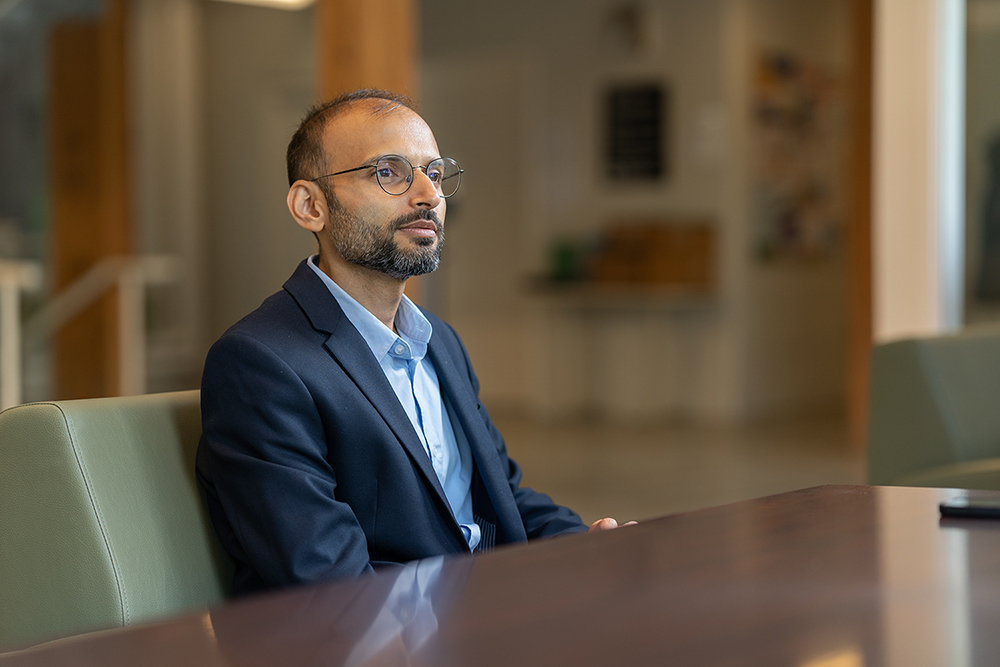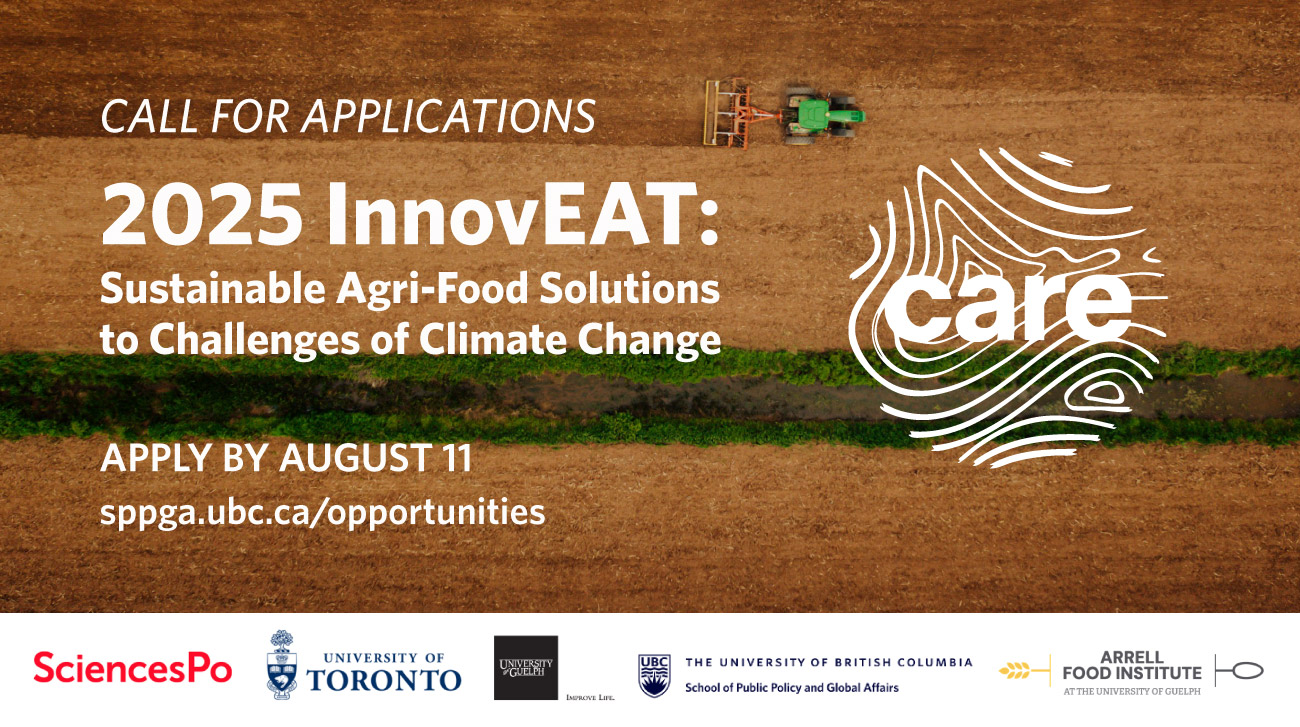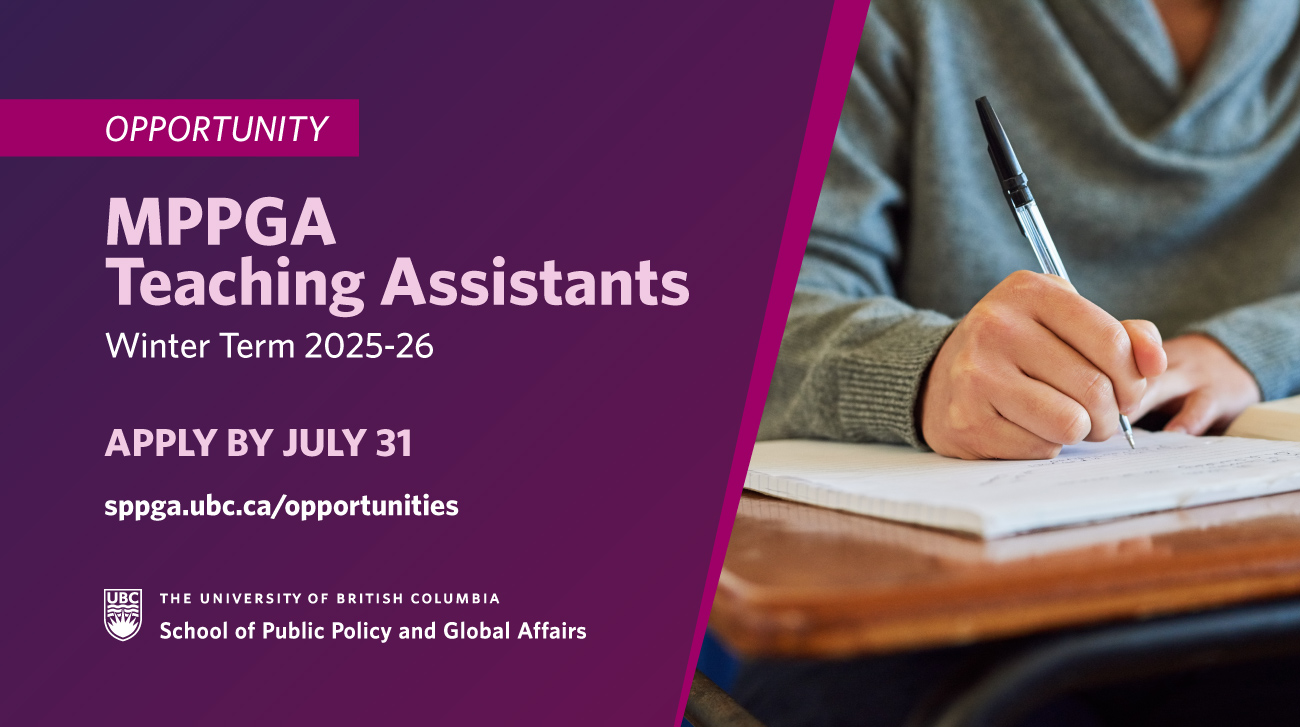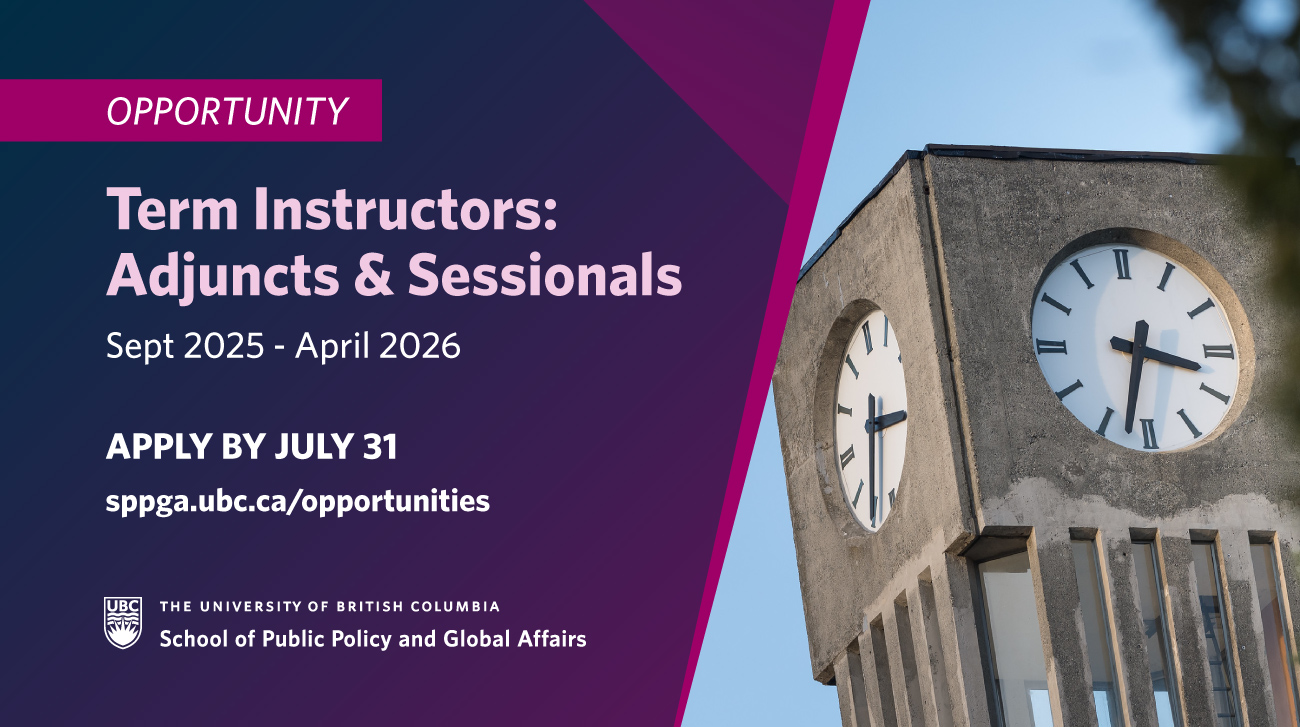

“The world currently has the technologies and resources available to produce the energy that we need in a clean and sustainable manner to a large extent. And yet, switching to clean technologies is one of the hardest transitions that we have ever had to make… This is a complex and demanding task for politicians, leaders and researchers but also one that is very rewarding and exciting.”
We are pleased to announce the addition of Dr. Tarun M. Khanna to the School of Public Policy and Global Affairs’ esteemed teaching faculty. Joining as an Assistant Professor, Dr. Khanna brings with him a wealth of expertise in energy economics and climate policy.
Dr. Khanna specialized in energy economics during his PhD, following his studies in economics at the University of Delhi. His research centers on the intersection of energy and climate policy, with a specific focus on the economics of decarbonizing the energy sector.
Prior to his academic career, Dr. Khanna spent time as a policy practitioner. He was a management consultant with PricewaterhouseCoopers and collaborated with renowned organizations including the World Bank, the Asian Development Bank (ADB), and the International Energy Agency (IEA), contributing to the design and implementation of electricity policies across South Asia. Notably, his insights helped shape the energy policy discourse in Germany during the 2022 energy crisis through his reports for the German government on demand-side measures.
He has co-authored educational resources such as the Open Electricity Economics Handbook, designed to empower students, policy-makers, regulators, and experts in the realm of electricity economics and public policy.
As Assistant Professor, Dr. Khanna will serve as the faculty lead for one of the MPPGA program’s GP2 projects focused on incentive-based regulatory energy models in Mongolia. He will also instruct a Special Topics seminar course on Energy Economics and a course on Evidence Synthesis.
We caught up with him to find out more:
How did you come to work in energy and climate policy? What drives your research?
I came to work in energy through my interest in infrastructure provision in general. Growing up in a developing country I witnessed firsthand how lack of good infrastructure—electricity, transport, water—impacted people’s lives and hobbled economic growth. I was lucky enough to get my first job in formulating energy policy in India at the time when the country’s energy sector was developing rapidly to meet the needs of a growing economy. Over the last decade as I moved to Germany, the need for decarbonizing the energy sector, while maintain the pace of growth, took center stage. The world currently has the technologies and resources available to produce the energy that we need in a clean and sustainable manner to a large extent. And yet, switching to clean technologies is one of the hardest transitions that we have ever had to make because those technologies and financial resources need to be deployed at the right place and at the right time, while keeping energy affordable for the average citizen and increasing energy access to the world’s poor. This is a complex and demanding task for politicians, leaders and researchers but also one that is very rewarding and exciting.
What are you working on currently? Can you give an example of how this shows up in our daily lives?
We live in not only an information age but also research age. Mostly that is a great thing but the pace at which research is published means that usually people, including researchers and policymakers, cannot keep up with it. Some of my current work uses evidence synthesis methods to aggregate research from various disciplines to understand how we can make better policies. For example, if you read your BC Hydro bills you would know that the company is trying to introduce a scheme wherein the price of electricity will vary according to the time when you use it, kind of like Uber surge pricing (only not as dynamic and much more regulated). My recent research that aggregates evidence from hundreds of reports on such schemes trialed elsewhere shows that pricing schemes like these can reduce peak energy demand that a company like BC Hydro must meet—a good thing because it reduces the overall cost. But such schemes have had limited impact on reducing overall energy consumption or getting people to consume at certain times of the day, which can also be important.
What are you most excited about in joining SPPGA as a faculty member?
Having studied in a policy school myself, I am at home in that environment. I find the range of topics that are discussed here super exciting! I am curious to learn from the work of colleagues. I hope to be able to further the conversation on climate and energy sustainability in the school, especially with students. I would love to find out how they think of the policy challenges that lie ahead of us.
What’s a fun fact about yourself that would surprise people?
Perhaps not so much of a surprise for someone who grew up at the time I did, but I am very well versed in Harry Potter trivia. I am a good addition to any Harry Potter quiz team (if that exists).
Tell us about a place you’ve traveled that really sticks in your mind as somewhere special you’d like to return to.
Kerela and Goa in India, and Sicily and Andalucia in Europe are my favorite holiday destinations. The warm weather, food, and culture are unbeatable. But the special place I would like to return to again and again is Berlin, where I lived before moving to Vancouver. It is a wonderful, vibrant and free city.


“I hope to be able to further the conversation on climate and energy sustainability in the school, especially with students.”
Learn more about Dr. Khanna here.


